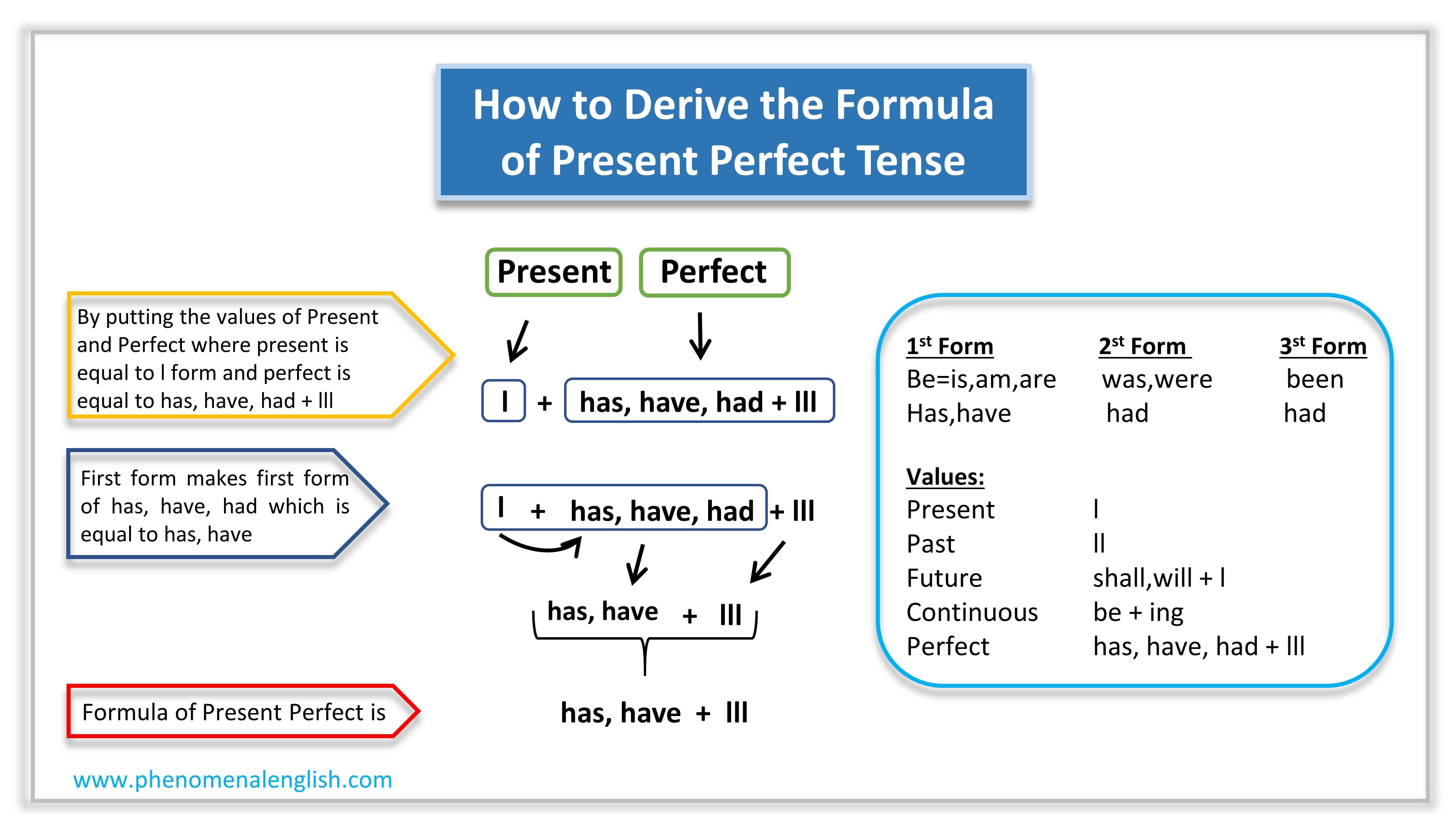Phenomenal English
Solution Destination to your Problems
Present Perfect
Definition of Present Perfect:
Present Perfect Tense suggests such actions whose occurance started in past and had already ended in the past having some continued effect in present.
In other words actions started in the past and continued to the present time.
Usages of Present Perfect:
- Sometime Present Perfect tense shows an action that has been occuring since a point in the past and has not completed yet. In other words it is used to describe an unfinished actions or event.
- I have lived in this house since my childhood.
- They have started this business in early nineties.
- I have taken three attempts so far.
- To describe a repeated action or activity from the past to the present in an unspecified time period.
- I have visited this place many times before.
- England has won this trophy several times.
- It has rained several times this week.
- To show an action completed in recent past.
- My father has got retirement this week.
- I have just paid utility bills.
- He has left Sudbury in a little while.
- To show an action which is completed but time of action is not mentioned or known.
- Someone has stolen my watch.
- I have read this book thrice.
- Old man has told an interesting story.
- To express personal accomplishments and achievements of humanity.
- Pablo has won gold medal in his studies.
- Kate has gone to Salisbury three times.
- Alexander Fleming has discovered penicillin.
- To show completed events or final results.
- I have passed my competitive exames in first attempt.
- Bill Gates has given the world a new way of life.
- Kimson has got 1st prize in debate competition.
- To show a change with passage of time.
- You have gained more skills since last time I tested you.
- My Knowledge of English has increased since I attended coaching classes.
- Population of London had spread in south since last decade.
What is difference between Present Perfect and Simple Past
There is a slight difference between Present Perfect and Simple past. It will be apt to know the difference between them for better and comprehensive understanding of english.
Simple Past is used when an action starts and finishes in the past, it has no connection with present. While Present Perfect is used when an action starts in the past and finishes in the present or at least has a continuing effect in present.
Examples
James was in relation with Kelly.This sentence shows James was in relation with Kelly somewhere in the past but now they are no more in relation. His action of making relation completed in the past.
James has been in relation with Kelly.This sentence shows James was in relation with Kelly somewhere in the past but they are still in relation.His action of making relation still continues in the present.
Examples
Sachin played 200 test matches.This sentence shows Sachin played 200 test matches, he started his cricket career somewhere in the past and ended it in the past too. In the present he is not playing cricket.
K L Rahul has played 40 test matches.This sentence shows Rahul has played 40 test matches, he has started his cricket career somewhere in the past and he is still playing. In the present his action of playing cricket continues.
Formation of Present Perfect:


Affirmative Sentences
In positive or affirmative sentences of Present Perfect Tense we use has, have and past participle (3rd form) of verb. Has with third person singular i.e (he, she, it, singular names) and have with 1st, 2nd and 3rd persons plural i.e (I, we, they, you, plural names).
Examples
- America has declared war against terrorism.
- The pious man has attended service in the church.
- Hard working boys have achieved their goals.
- Girls have participated in debate competition.
- I have written six articles for my website.
Interrogative Sentences
In interrogative sentences of Present Perfect Tense we drag has, have before subject and use past participle (3rd form) of verb. Has with third person singular i.e (he, she, it, singular names) and have with 1st, 2nd and 3rd persons plural i.e (I, we, they, you, plural names).
Examples
- Have students completed their model projects of science?
- Has my company won two projects in final bid?
- Have I visited Dubai many times for my business?
- Has gerdner cleaned the weeds and leaves from garden?
- Has my son performed acrobatics in the live show?
Negative Sentences
In negative sentences of Present Perfect Tense we use not after has, have and past participle (3rd form) of verb. Has with third person singular i.e (he, she, it, singular names) and have with 1st, 2nd and 3rd persons plural i.e (I, we, they, you, plural names).
Examples
- Jonathan has not been the chief officer in this dept.
- Most of the students have not attended the webinar.
- The weather has not changed drastically over the recent years.
- Teacher has explained this point time and again.
- She has not spent her whole life in Bristol.